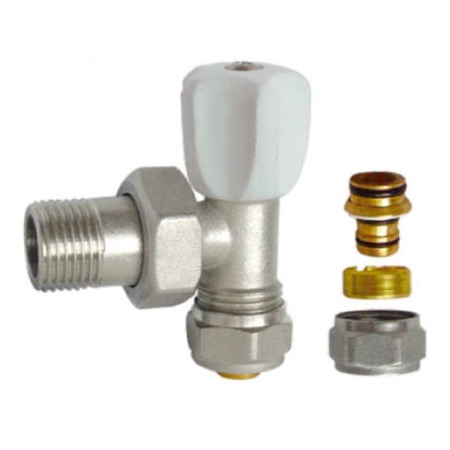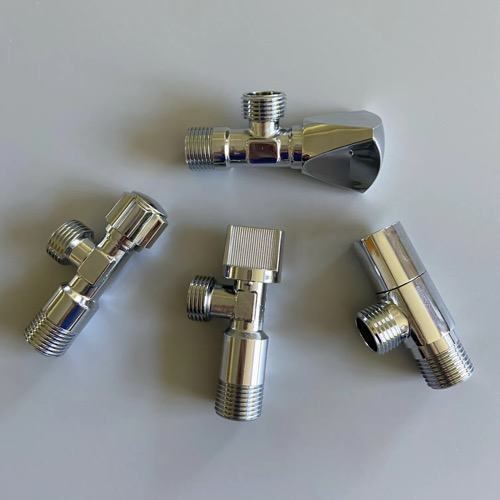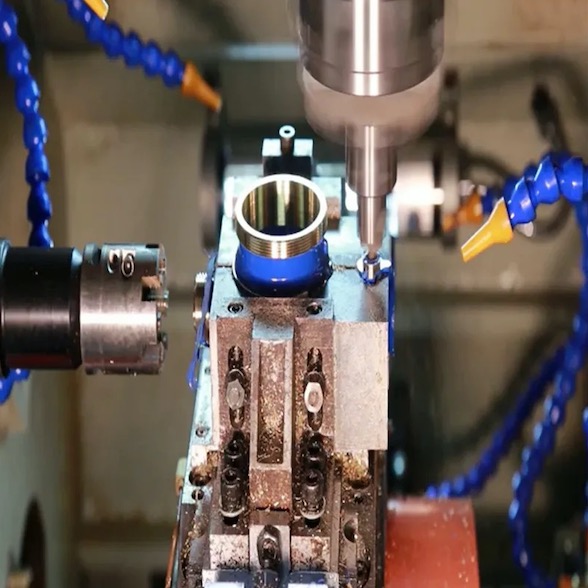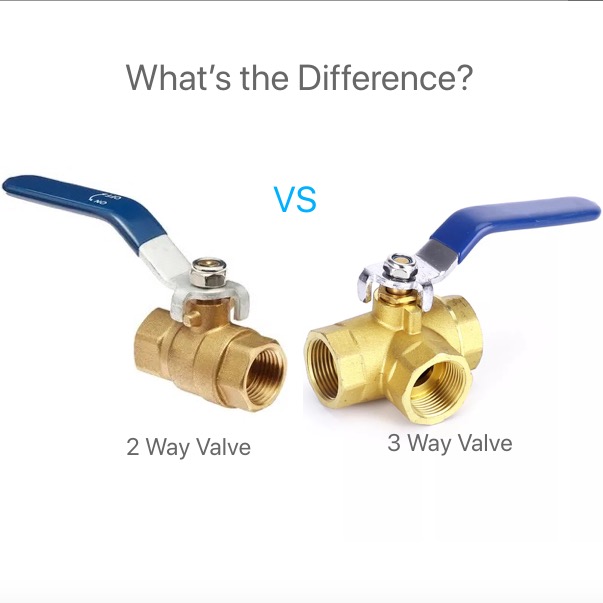Brass ball valves and PVC ball valves are two of the most commonly used valves in plumbing, industrial, and irrigation systems. Choosing the right one can significantly impact the efficiency and longevity of your system.
Brass ball valves are known for their strength and durability, making them ideal for high-pressure and high-temperature environments. PVC ball valves, on the other hand, are cost-effective and resistant to chemical corrosion, making them suitable for certain applications.
Understanding the differences between these two types of ball valves will help you determine which one best suits your needs.
What is a Brass Ball Valve?
Brass ball valves are widely used in plumbing and industrial applications due to their durability and resistance to high pressure and temperature.
A brass ball valve is a quarter-turn valve made from an alloy of copper and zinc. It is designed for applications that require strength, corrosion resistance, and high performance.
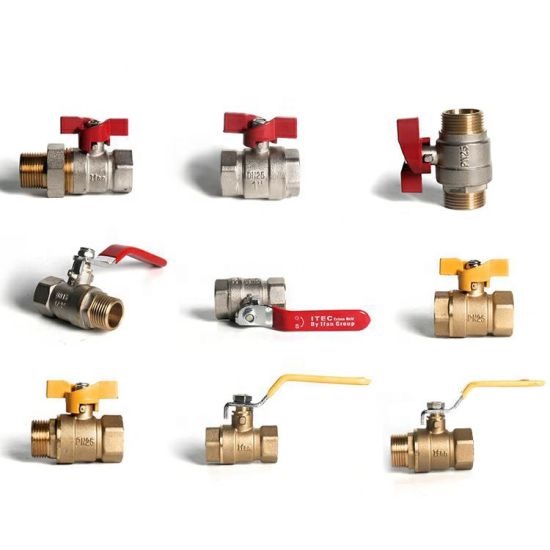
different types of brass ball valves
Key Features of Brass Ball Valves
- High resistance to pressure and temperature.
- Compatible with water, oil, and gas applications.
- Corrosion-resistant when exposed to water (but can be affected by certain chemicals).
- Long lifespan and reliability.
- Available in different sizes and connection types.
Brass ball valves are used in industrial applications, heating systems, gas lines, and plumbing due to their robustness. However, they may be more expensive than PVC ball valves, and prolonged exposure to highly corrosive environments can lead to degradation.
What is a PVC Ball Valve?
PVC (Polyvinyl Chloride) ball valves are lightweight, cost-effective, and resistant to corrosion, making them an excellent choice for certain applications.
A PVC ball valve is a plastic valve designed for water and chemical applications. It is highly resistant to corrosion and chemical damage but may not withstand high pressure and temperatures like brass valves.

PVC VALVES
Key Features of PVC Ball Valves
- Lightweight and easy to install.
- Highly resistant to corrosion and chemical reactions.
- Affordable compared to brass ball valves.
- Suitable for low to medium pressure systems.
- Not recommended for high-temperature applications.
PVC ball valves are commonly used in residential plumbing, irrigation, and chemical processing industries. However, they have limitations when exposed to extreme conditions or high mechanical stress.
How Long Will a Brass Ball Valve Last?
Brass ball valves are known for their durability and long lifespan, making them a preferred choice for industrial and high-performance applications.
A well-maintained brass ball valve can last 20-50 years, depending on usage, environmental conditions, and maintenance.
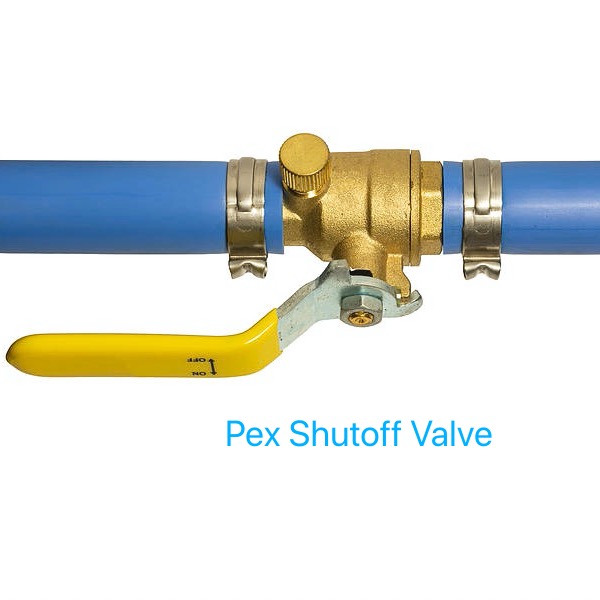 pex shut off valves
pex shut off valves
Factors Affecting Brass Ball Valve Lifespan
- Water Quality: Hard water and chemicals can affect longevity.
- Operating Conditions: High pressure and temperature may lead to gradual wear.
- Corrosion Resistance: Brass is corrosion-resistant but can deteriorate with certain chemicals.
- Maintenance: Regular cleaning and lubrication can extend its lifespan.
Brass ball valves are ideal for long-term use in high-demand applications, but they require periodic maintenance to prevent wear and tear.
How Long Will a PVC Ball Valve Last?
PVC ball valves are designed for affordability and chemical resistance1, but their lifespan depends on the application and environmental factors.
A PVC ball valve typically lasts 5-15 years, depending on the pressure, temperature, and chemical exposure.

PVC Valve Lifespan
Factors Affecting PVC Ball Valve Lifespan
- Pressure & Temperature: Exceeding recommended limits can shorten lifespan.
- Chemical Exposure: PVC is resistant to many chemicals but can degrade in harsh environments.
- Mechanical Stress: Over-tightening or impact can cause cracks.
- UV Exposure: Prolonged sun exposure can weaken PVC over time.
PVC ball valves are excellent for low-pressure, non-critical applications but should not be used in environments requiring extreme durability.
Which is Better: Brass or PVC Ball Valves?
Choosing between brass and PVC ball valves depends on your specific needs and budget.
| Feature | Brass Ball Valve | PVC Ball Valve |
|---|---|---|
| Durability | High | Moderate |
| Temperature Resistance | Up to 200°C | Up to 60°C |
| Pressure Resistance | High | Low to Medium |
| Corrosion Resistance | Moderate | High |
| Chemical Resistance | Limited | Excellent |
| Cost | Higher | Lower |
| Weight | Heavy | Lightweight |
When to Use Brass Ball Valves
- Applications requiring high strength and durability.
- High-pressure and high-temperature environments.
- Situations where long-term durability is essential.
- Use with various fluids like water, oil, and gas.
When to Use PVC Ball Valves
- Cost-sensitive applications.
- Applications involving corrosive chemicals.
- Low to medium pressure systems.
- Residential plumbing, irrigation, and water treatment systems.
Conclusion
Brass ball valves are the best choice for durability, high pressure, and extreme conditions, while PVC ball valves are ideal for cost-effective, corrosion-resistant applications. Choose based on your system's needs to ensure longevity and efficiency.
In questions or inquiry, welcome to Contact Us.
-
Exploring chemical resistance can provide insights into how to choose the right valve for your specific application. ↩




